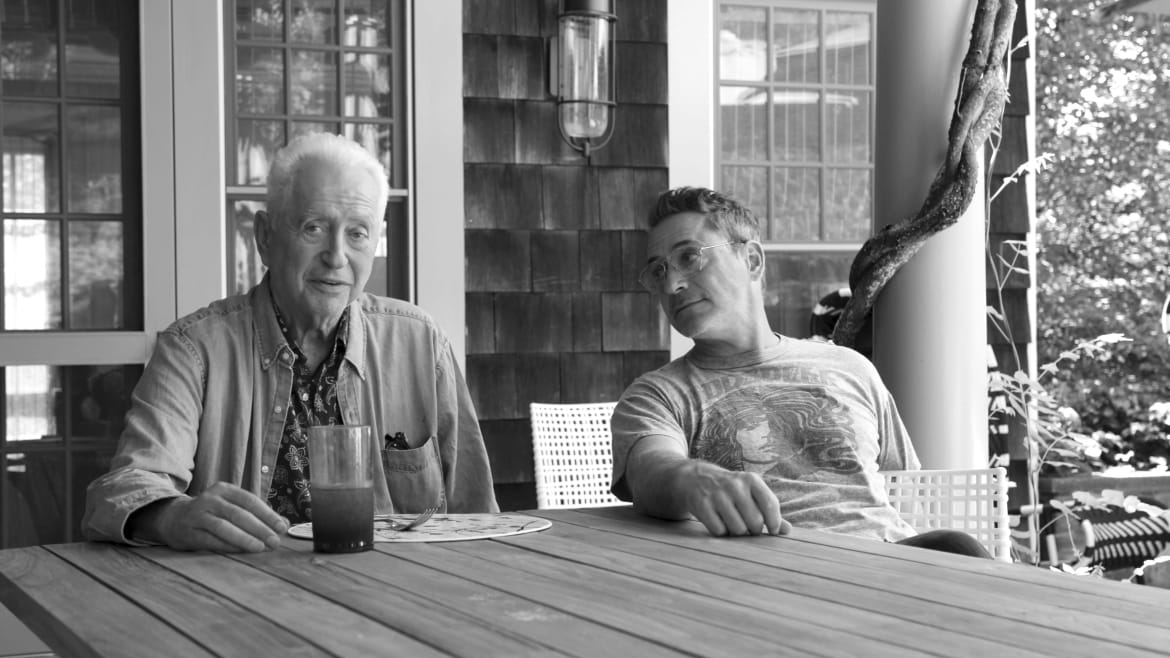Netflix
Robert Downey Jr. has been a star for so long—and been one of the industry’s premier marquee draws since 2008, when he assumed the foundational Marvel Cinematic Universe role of Tony Stark in Iron Man—that it’s easy to forget that he’s the son of movie royalty. Sr. aims to correct that potential oversight, serving as a loving tribute to Downey’s dad Robert Downey Sr., an iconoclastic filmmaker whose work in the late ’60s and ’70s was at the forefront of the independent cine-counterculture movement. Directed by Chris Smith (American Movie), it’s a non-fiction biopic that’s infused with the unique humor and creativity of its subject, as well as steeped in the complicated but palpable love shared by a father and son in the years leading up to the former’s passing from Parkinson’s disease in July 2021.
Premiering at this year’s New York Film Festival (ahead of an eventual Netflix debut), Sr. is shot exclusively in black-and-white in what feels like kinship with Sr.’s seminal early features, made on the cheap and the fly in New York City with a ragtag group of collaborators who knew that the thing wasn’t money but, rather, inspired, out-there artistry. Sr. was, as his son says, a filmmaker who existed in a constant state of being either “broke” or “flush,” and given that the latter condition meant that he had $500 in the bank, stability was never consistently attained. It was in this environment that Jr. grew up, sleeping in a crib in the room next door to where his dad and his mom, actress Elsie Ann Ford, worked on dailies, and his parents’ passion for cinema is the obvious and clear genesis of his own lifelong vocation, which began on Sr.’s 1970 Pound (about a group of dogs, all played by people, awaiting execution at the title location) with the auspicious first line, “Have any hair on your balls?”
Sr. was a “troublemaker” whose films were wild, crazy, and unbeholden to convention or propriety. They were natural outgrowths—and reflections—of the roiling social period in which they were produced. The writer/director’s career peaked early, at least in terms of acclaim, with 1969’s Putney Swope, an enduring satire about civil rights-era turmoil, hypocrisy, rage, and absurdity that made him a national name (and resulted in a Life magazine article titled, hilariously, “Robert Downey Makes Vile Movies”). A lengthy and not particularly joyous stint in Los Angeles followed—as friends and collaborators Alan Arkin and Norman Lear explain, Sr. was a New York kind of guy. One can feel that not only in the edgy, electric energy of his movies, but in new sequences of him walking around the metropolis, finding wonder in a group of ducks swimming in a pond in the courtyard of his high-rise apartment building, in the sight of a man doing an impromptu workout on scaffolding, or in the sound of traffic, boats and people as he sits beside the water on a beautiful sunny day.

